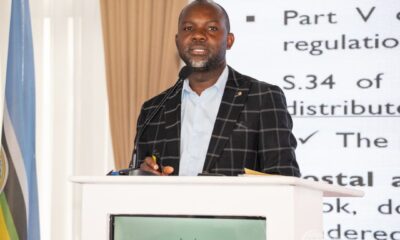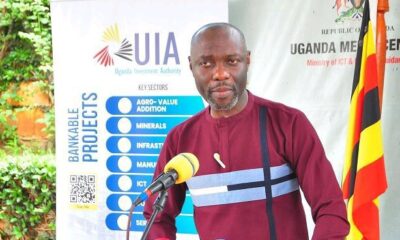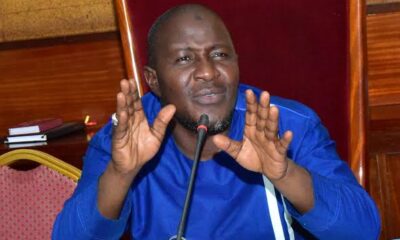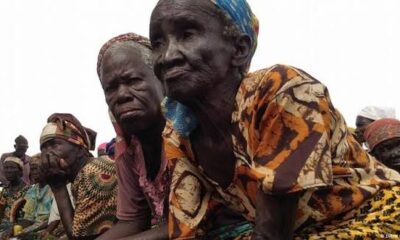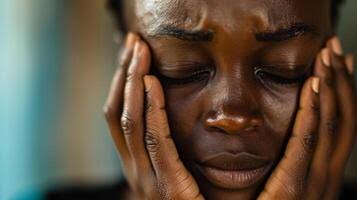Politics
Still Having Unfunished Business!! Museveni Picks Nomination Forms Seeks Seventh Term Ahead Of 2026 Election
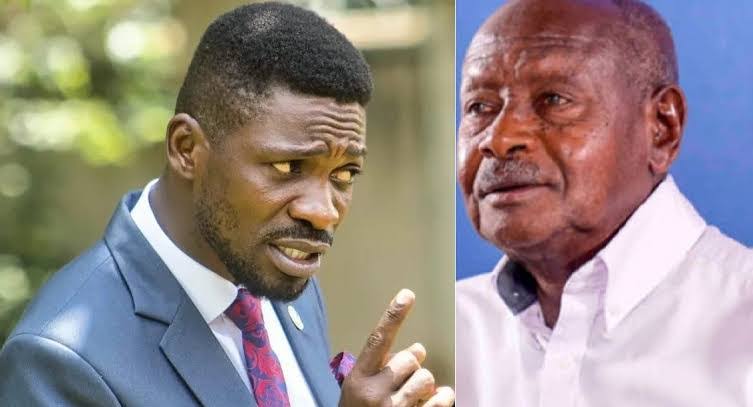
Uganda’s President, Yoweri Kaguta Museveni, who has held power for nearly four decades, has officially confirmed his candidacy for the 2026 general election. On Wednesday, at the Electoral Commission headquarters in Kampala, his political party, the National Resistance Movement (NRM), took the formal step of picking up nomination forms on his behalf. Although Museveni was away on a state visit to Egypt at the time, the task was carried out by NRM Secretary General Richard Twodong and First National Chairman Moses Kigongo. This move signals a crucial moment in Ugandan politics, with Museveni reaffirming his commitment to extend his long reign.

Since assuming power in 1986, Museveni has become a dominant figure in Uganda’s political landscape. His decision to seek another term comes after significant pressure from his party members, who have urged him to continue leading the country. This feedback, especially during his tours for the Parish Development Model (PDM), a government initiative aimed at reducing poverty and boosting local economic development, appears to have solidified his resolve to run again. In his statement, Museveni framed his bid for re-election as essential to maintaining stability and ongoing socio-economic progress for Uganda. He insists that his leadership is vital to ensuring that the country stays on its current development path without disruption.
However, Museveni’s announcement has sparked significant opposition. While the NRM has officially endorsed him as its presidential flag-bearer, his bid for a seventh term is already facing stiff competition. The 2026 race is shaping up to be one of the most competitive in Uganda’s history, with a record number of presidential candidates emerging. In August 2025, nearly 80 presidential hopefuls, including many independent candidates and figures from smaller parties, flocked to the Electoral Commission to collect nomination forms. Among these new challengers are younger candidates and less-established political figures, marking a growing push for change and signaling the potential start of a new political era in Uganda.

This wave of presidential aspirants represents a clear challenge to Museveni’s nearly four-decade-long rule. The Electoral Commission requires all presidential hopefuls to gather endorsements from at least 100 registered voters across two-thirds of Uganda’s districts and pay a nomination fee of 20 million shillings. The anticipation surrounding the upcoming election is palpable as these candidates work to meet the requirements, but many observers believe that the true contest will be between Museveni and the rising opposition forces, particularly with figures like Bobi Wine, the popular musician-turned-politician, also declaring his intention to run for president.

Despite the growing opposition, Museveni’s grip on power remains strong for now. His decision to run again has reignited concerns over the state of Uganda’s democracy, particularly as his government faces mounting criticism from human rights groups and opposition politicians. Accusations of politically motivated arrests of opposition figures, including the ongoing case of longtime rival Kizza Besigye, who remains in jail on controversial treason charges, are intensifying tensions ahead of the election. Besigye’s legal struggles and his longstanding fight against Museveni’s regime have added fuel to the fire, making the 2026 election one of the most contentious in Uganda’s history.
As the race for the presidency intensifies, Museveni’s long rule has become a point of debate. Critics argue that his extended stay in power undermines Uganda’s democratic institutions, while his supporters contend that his leadership has brought much-needed stability and economic growth to the country. As Uganda gears up for the 2026 general election, one thing is clear: the political landscape is evolving, and the presidential race will be more competitive than ever, with new voices challenging the political powerhouse that Museveni has built over the last 40 years.

